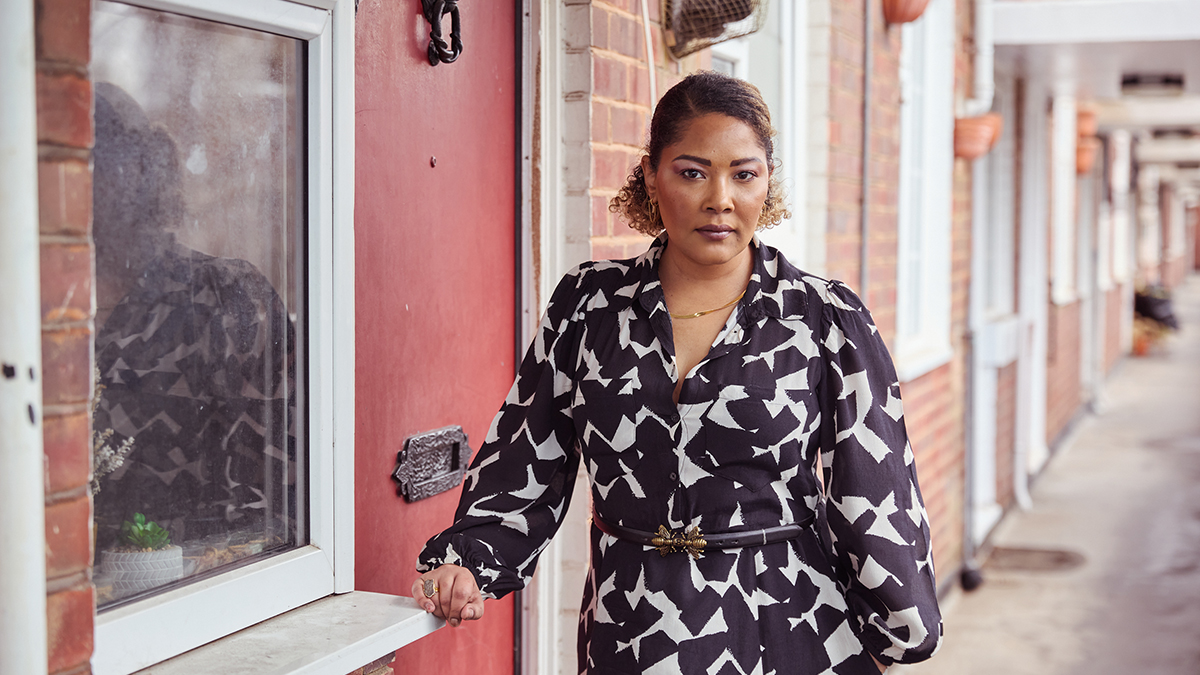With a general election looming, political parties must show they’re serious about tackling the growing housing emergency to win crucial votes. Especially from women whose votes are more likely to be up for grabs.
A recent YouGov poll revealed 22% of women were still undecided on how they’d vote, compared to 12% of men. And ‘Stevenage Woman’ has featured in the news as the floating voter to win over.
The theme of this year’s International Women’s Day is ‘inspiring inclusion’.
When we include the views, needs and aspirations of women, we forge a better world. It’s vital we include the perspectives of women from all walks of life, including women whose voices are marginalised and often unheard.
Why listen to women when it comes to fixing the housing emergency?
Well, for starters, women in the UK are more likely to be involved in household tasks, so are disproportionately affected if their home is unsuitable or unsafe. Women in paid employment still do more unpaid household work and care than their male counterparts, such as preparing meals, laundry and cleaning, as well as caring for children and older relatives.
But more importantly, women are bearing the brunt of the growing housing emergency. Last week’s government statistics revealed shocking new record highs, with 109,000 households now homeless in temporary accommodation in England. Look behind these statistics and it’s clear to see that women are disproportionately affected.
Tens of thousands of women are mothering while homeless
Lone mother households make up 59% of families homeless in temporary accommodation provided by councils, despite making up only 20% of families in the general population.
That’s a whopping 36,940 women caring for their children alone in the most appalling conditions. Often accommodated in one room with a tiny kitchenette. No oven. No washing machine. Sometimes, not even a fridge.
Listen to Sky’s voice and Natasha’s voice to understand more about what this is like.
Trying to get children off to sleep while sharing beds. Then having to sit silently in the dark all evening so as not to wake them. Or potty-training toddlers in toilets shared with strangers. Travelling miles on buses to get the kids to school on time. Miles from the support of friends and family. Moved again at two days’ notice.
Worrying about the impact of the crowded and hazardous living conditions on their children, to the extent of checking they’re still alive at night. Just this week came the grim news that 55 children, most of them babies, have died suddenly and unexpectedly over the past four years while homeless in temporary accommodation. One in five households report they have a safety hazard, such as faulty wiring or fire risks.
As well as lone mother households, women also make up a proportion of the 21,640 couples who are homeless with children. They may not be parenting alone, but all the challenges of mothering in such circumstances remain. More than two thirds (68%) of families have spent a year or more homeless this way.
Thousands of women are homeless alone: 76% rise in rough sleeping in two years
In addition to these numbers, there are a further 12,740 women homeless entirely alone in temporary accommodation. Often in mixed hostels where they have to share amenities with men. Often young and frightened. With little prospect of getting a private rented home, let alone a social one.
These are women whom the council has accepted a legal duty to accommodate, perhaps because they’ve survived domestic abuse or have disabilities or health problems.
But they could be deemed the lucky ones – not that any form of homelessness can be described as lucky.
The unlucky ones are homeless on the streets. This is where we get to the truly shocking bit.
Since we came out of pandemic measures two years ago (resulting in a fizzling out of the government’s ‘Everyone In’ approach to accommodating people sleeping rough) there’s been an incredible 76% rise in the number of women sleeping rough on our streets. From 322 in 2021 to 568 in 2023. While far more men (3,214 at last count) than women sleep rough, there’s been much less of a rise (55%) in these numbers.
So, over 500 women are having to bed down in the elements, at risk of exploitation, abuse and violence. Their average age of death is 43. Instead of investing in homes, the government wants to criminalise them.
For the love of women, vote to end the housing emergency
So, on International Women’s Day, we must vow to make sure the voices of women and their need for homes are included in general election debates. Together, we can create a better future for every woman struggling with homelessness and housing problems, by demanding the next government fixes the housing emergency by investing in a new generation of social rent homes.
We urge you to listen to the mothers, like Sky and Natasha, bravely carrying on through the housing emergency and lovingly raising children in the most awful circumstances.
We urge you to listen to Priscilla and Sireena, who have shared their stories to make sure the next government fixes the housing emergency for good.
We urge you to sign our letter demanding political leaders pledge to invest in building the social rent homes we need, if elected this year. And to vote for homes to make women’s dreams of a settled, affordable and safe home a reality.
We urge you to donate or support us through our online shop, to help us continue the fight for home until no woman has to go through homelessness again.

